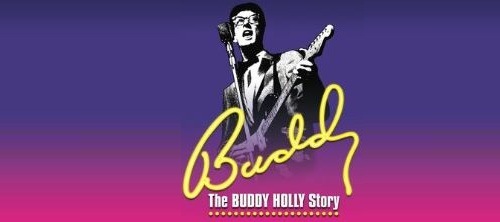
Acte I
In Lubbock, Texas, 19 year old Buddy Holly is an up and coming country music singer. He and his two friends, Joe and Jerry (The Crickets), want to experiment with the new and controversial style of music called rock 'n roll. They struggle for a time in Texas and then in Nashville, where producers want Buddy to record country and western music, ignoring Buddy's pleas to "do it his way". The escalating argument almost results in a fist fight between Buddy and the Decca producer, thus ending Buddy's Decca relationship. Hipockets Duncan, a local DJ and friend of Buddy's, knowing that Buddy is frustrated, puts him in contact with an up and coming Producer who will let him play "his music, his way."
A contract with pioneering record producer Norman Petty results in a string of hits, including the 1957 hits "That'll Be the Day" and "Peggy Sue" (the latter a last-minute change of title from "Cindy Lou" at the behest of the group's drummer). The group then appears at the Apollo Theater in Harlem (where theater musicians and audience are mistakenly expecting a black group), resulting in The Crickets being the first white group to perform there, where they are enthusiastically received.
Acte II
Following these successes, The Crickets begin to record in New York City, where Buddy meets and impulsively marries Puerto Rican record publisher receptionist Maria Elena Santiago.
After a break-up with the Crickets, Buddy starts a solo career, leading to his being signed as one of the headliners on the 1959 "Winter Dance Party". Fed up with the terrible Midwestern weather and tired of traveling by tour bus, 22-year-old Holly breaks a promise to his pregnant wife not to fly. Following a February 2, 1959 concert at the Surf Ballroom in Clear Lake, Iowa, he and two other stars, the Big Bopper and young Ritchie Valens (a last minute replacement for another musician), depart on a small plane during a blizzard, a fateful decision that places them in musical history books in an unexpected and tragic way.

.png)
.png)




